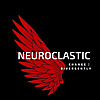
Neuro Clastic
1,400 FOLLOWERS
Content about autism by autistic and neurodivergent people. Neuro Clastic is a collective of actually autistic writers and artists advocating for autistic representation and human rights.
Neuro Clastic
15h ago
Initial results from a survey on psychological safety and mental wellbeing indicate that the biggest fears of Neurodivergent, LGBTQIA+, and Disabled children – and especially those who also belong to cultural minorities, relate to classmates, parents, and teachers. 97% indicate often or always having anxiety, and 80% indicate often or always feeling depressed. We are committed to gathering further data from as many geographies as possible. The data and lived experience reports will flow into our education courses for teachers, and will inform our advocacy work.
The results from our Feeling Sa ..read more
Neuro Clastic
1w ago
Autistic ways of being are part of a culture that deserves the same respect as any other culture. Over the course of months and years, de-powered dialogue and omni-directional learning amongst Autistic, Artistic and otherwise Neurodivergent people results in trustworthy relationships, and in a diverse network of evolving intersectional ecologies of care.
This is a really important message for medical professionals who have been trained to look at humans as individuals, at best within a context of an atomised family, but not as precious human beings within an ecological context.
The numbers an ..read more
Neuro Clastic
2w ago
The biggest fears of Neurodivergent, LGBTQIA+ and Disabled people relate to unmet healthcare needs, their work environment, their parents, and disrespect by healthcare professionals. Data from our participatory research shows the large overlap and the intersectionality between Autistic communities, and the LGBTQIA+ and Disabled communities.
Safety of intersectionally marginalised people
Prevelance of trauma
Neurodivergent, LGBTQIA+ and Disabled patients
What are the most important things you wish healthcare professionals to know, respect, and do, when engaging with you?
Have you had a ..read more
Neuro Clastic
2w ago
The normalisation of social power gradients and powered-up relationships is the terminal disease that plagues all empires. Since we live in the context of the convulsions of dying empires, it is important to understand the cultural dynamics that are unfolding.
Joseph Tainter’s analysis of complex societies shows that collapse of hierarchical complexity “is not a fall to some primordial chaos, but a return to the normal human condition of lower complexity”.
This article offers a curated list of valuable public learning resources for our current times, to help us acknowledge our cognitive and e ..read more
Neuro Clastic
3w ago
There is an urgent need to catalyse Autistic collaboration and co-create healthy Autistic, Artistic, and otherwise neurodivergent whānau all over the world. Autists depend on assistance from others in ways that differ from the cultural norm – and that is pathologised in hypernormative societies. However, the many ways in which non-autistic people depend on others is considered “normal”. The endless chains of trauma must be broken.
Surviving on the edges of modern society is an Art. The Arts and regular immersion in genuinely safe Open Spaces help us imagine ..read more
Neuro Clastic
3w ago
Over the last 5,000 years the ambiguities of linear written narratives and convenient interpretations have played a big role in amplifying social power gradients. The story of infinite economic growth and technological progress portrays a completely delusional and scientifically impossible world, which not only ignores biophysical limits, but also human cognitive and emotional limits. Nurturing the human capacity to extend trust to each other, and engaging in the big cycle of life as part of an ecology of care beyond the human is the biggest challenge of our times.
Language
Imagination
Mutua ..read more
Neuro Clastic
1M ago
4th of March is Weird Pride Day. This is a day for people to embrace their weirdness, and reject the stigma associated with being weird. To publicly express pride in the things that make us weird, and to celebrate the diversity of humankind.
Many people need desperately to receive this message: ‘I feel and think much as you do, care about many of the things you care about, although most people do not care about them. You are not alone.’
– Kurt Vonnegut, Timequake
To be weird is to be alive. Sailing into the headwind, together. All over the world, people on the margins are converging on ..read more
Neuro Clastic
2M ago
AutCollab Education invites you to participate in Neurodiversity Celebration Week and to learn directly from the neurodiversity and disability rights movement via paradigm shifting professional education courses.
The objectives of the neurodiversity and disability rights movements overlap significantly with the struggles of indigenous peoples. All people are fully human.
Neurodiversity Celebration Week is not only about neurodivergent students, it is also about the many neurodivergent teachers, parents, artists, and professionals and entrepreneurs in all sectors of our economy – who are ..read more
Neuro Clastic
2M ago
Life is a highly dynamic system. Reflecting deeply on the relational nature of life allows us to become reacquainted with human emotional limits. Powered-up relationships are inherently incompatible with healthy ways of being human. Along the way we also begin to re-appreciate the limits of human comprehensibility and sense making.
Evolution of humans
Gene-culture co-evolution
Cultural evolution
Ubiquitous global peer to peer communication
Modern addictions
Convenience
Social power
Survival tools
The path towards sobriety
Evolution of humans Gene-culture co-evolution
Humans only becam ..read more
Neuro Clastic
2M ago
Autists learn and play differently, because our senses work differently, and because we make sense of the world in different ways. Our sensory profiles don't allow us to push cognitive dissonance out of conscious awareness. We feel and know that a way of life that traumatises large segments of the population and the non-human world does not make any sense. We need to slow down, to the relational speed of life.
Less WEIRD education
Autistic ways of learning
WEIRD lack of authenticity
Depowered dialogue
Slowing down
Employment
Entrepreneurship & worker co-ops
Mutual aid
Less WEIRD ed ..read more